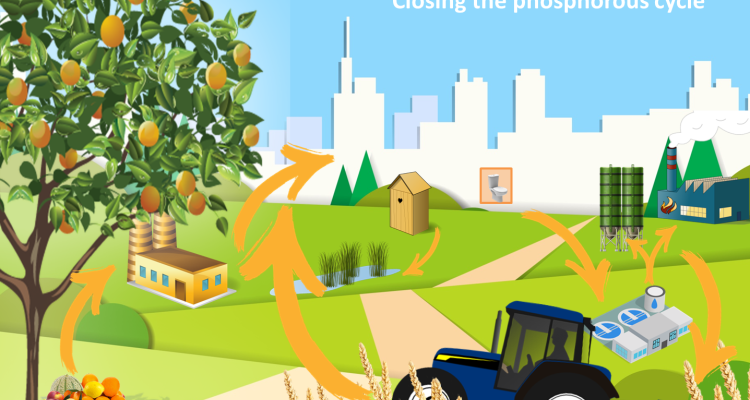
Project
From Toilet to Food
Agriculture and food security rely on fertile soils and nutrients, like for example phosphorous which comes from finite sources. At the same time, significant amounts of nutrients are released with waste water into the environment where they cause eutrophication of ecosystems. Re-use of phosphorous from domestic waste water in agriculture entails a major step towards closing cycles of elements.
To understand how the phosphorous cycle– from toilet to food – can be closed, a sanitation-agricultural systems approach is needed to make the closing of nutrient cycles relevant and useful for all parties involved along the entire waste water and nutrient chain. Yet, to date, there is limited comprehensive knowledge of how to optimally link these systems into a closed cycle and how the waste water and agro-ecosystem and subsystems can efficiently interact.
In this postdoc project I aim to develop novel approaches to understand and facilitate the interactions between the subsystems (sanitation, waste water treatment, agriculture, food processing & consumption). We do so by ‘reversing’ the nutrient cycle; focussing on the demand for nutrients in food production. An important step within this research project is the unravelling of the many routes that phosphorous can follow in closing nutrient cycles as there are many possibilities for bringing phosphorous back into the food system, all with its own particularities. Mapping these routes will provide a basis for interaction and shared learning.
The project From Toilet to Food is a collaborative project between Environmental, Social, Agrotechnological and Plant Sciences Groups at Wageningen University & Research, funded within its strategic theme "Resource Use Efficiency".